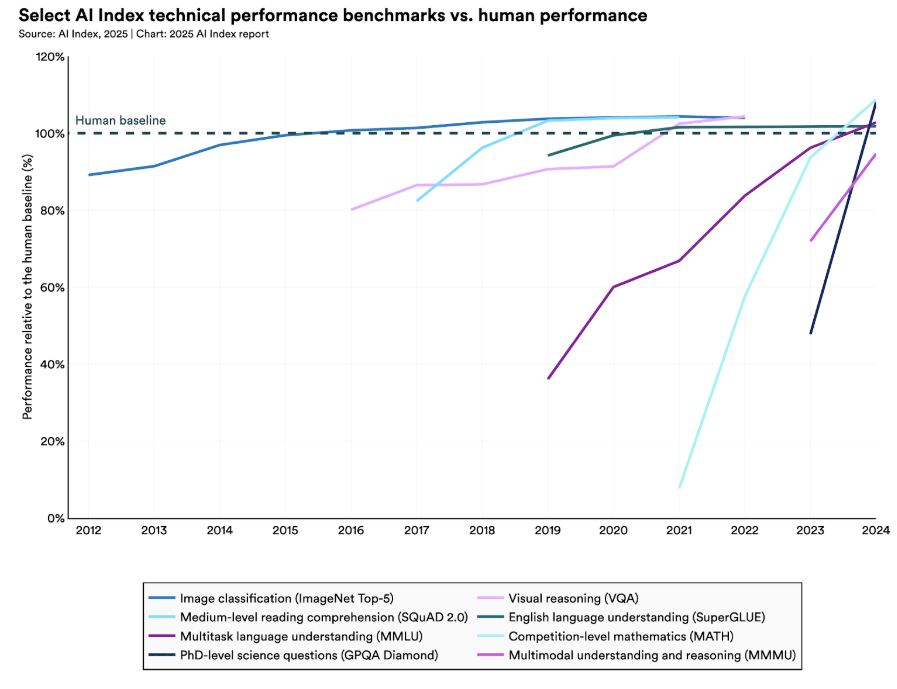AI-native applications present a significant market opportunity, especially in the vast global services sector, beginning with the emergence of “vertical AI.” Unlike traditional vertical SaaS, companies in areas such as legal and healthcare gained attention last year for creating LLM-based solutions for previously underserved industries. Since then, numerous competitors have surfaced in these areas, with new sectors also becoming targets for innovation with LLMs. This week, we highlight excerpts from Radical Investor Molly Welch’s recent article, where she explores functional analysts as the new face of vertical SaaS.
Today’s vertical AI companies follow in the tradition of vertical software, which is distinguished by sector-specific product offerings and workflows. In the past decade, vertical SaaS has emerged as a formidable software category, with the acceleration of businesses like Shopify (e-commerce with an approximate $100 billion market cap), Toast (hospitality with an approximate $13 billion market cap), and ServiceTitan (home services and last valued at approximately $10 billion).
To date, the opportunity of vertical SaaS has been that “software is eating the world.” Every industry, no matter how analog – and perhaps especially those that are – has unique business needs that can be better addressed by software than pen and paper. Indeed, some of these enterprise needs were actually net new in the Internet era, like the importance of an online storefront and seamless checkout experience that facilitated the rise of Shopify. The trick was to make these vertical SaaS businesses big enough for “venture scale,” e.g. $100M or more in annual revenue. There are familiar adages about how vertical SaaS businesses succeed, including the importance of market leadership – lower TAMs mean market penetration is key for scaling revenue – and expanding product offerings to counteract sometimes low ACVs.
In contrast, the value proposition of vertical AI is that AI is eating software AND services. The new generation of vertical AI startups are largely functional rather than vertical. That is, these enterprises automate business functions rather than providing industry-specific software. Note that they can also often be “vertical” in that their products may be particularly targeted towards or useful in certain enterprise contexts. The incumbents in these categories often are not legacy software, but rather outsourced service providers, either professional services firms or business process outsourcing (BPO) providers.
Regardless of the functional work they are automating, vertical AI startups need the following to succeed: data advantage, domain expertise, and finding manual and costly processes to automate.
We are particularly excited about internally-facing enterprise applications. Internal applications allow enterprises to leverage available internal data and experiment in a lower-stakes context, while still demonstrating alignment with top-down “GenAI mandates” from CEOs. Internal LLM applications also have the added benefit of promising efficiency gains – particularly compelling as enterprises increasingly prioritize profitability in a lower growth environment (see Meritech’s latest report documenting forward-looking revenue growth and free cash flow margins).
For the startups tackling vertical AI, there are a few watch-outs and open questions to navigate, including inference costs, finding “hair on fire” problems within the enterprise, and executing quickly. It is a brave new world ahead.
Molly writes a regular blog. Read the article in full.
AI News This Week
-
Vice President Harris on Artificial Intelligence (The White House)
The White House announced new rules for US government agencies to make sure their AI tools do not harm the public. Over the coming months, federal agencies will have to appoint chief AI officers, report their AI use, and set up safeguards against risks. The US House of Representatives also banned congressional staffers from using Microsoft’s Copilot assistant last week. The House banned the free version of ChatGPT last year.
-
AI learned how to sway humans by watching a cooperative cooking game (UC Berkeley)
Recent research from the University of California, Berkeley, showcased last year at NeurIPS, reveals that AI can learn to collaborate with humans effectively by observing previous interactions, employing offline reinforcement learning. This method, tested in the virtual kitchen game “Overcooked”, allows AI to deduce successful teamwork strategies without real-time interaction, mitigating risks and the need for human training hours. This advancement in AI research suggests potential for improved human-AI cooperation and highlights the importance of ethical considerations in AI’s ability to influence human choices.
-
How we’ll reach a 1 trillion transistor GPU: Advances in semiconductors are feeding the AI boom (IEEE Spectrum)
Recent AI advancements stem from innovative algorithms, extensive data for neural network training, and advances in energy-efficient semiconductor technology. To maintain momentum, the industry needs far more powerful devices. After decades of focusing on transistor miniaturization, the future lies in creating GPUs beyond today’s size constraints, integrating as many energy-efficient transistors as possible into AI systems. The cost and efficiency of deploying AI is becoming as crucial as the training phase, with big tech firms and startups alike, such as Radical Ventures portfolio company Untether AI, exploring more cost-effective, specialized solutions for inference tasks.
-
Policy options to close Canada’s AI compute gap (Toronto Metropolitan University)
Canada is a pioneer nation in AI but faces a significant challenge due to a lack of AI Compute (AIC) infrastructure. The country’s reliance on external cloud-based solutions highlights the need for improved domestic AIC access and policies. Potential strategies include subsidizing AIC, partnering internationally for AIC access, and building domestic supercomputing capacity. Addressing the AIC gap is crucial for Canada to maintain its competitive edge in AI and ensure economic and data sovereignty.
Radical Reads is edited by Ebin Tomy (Analyst, Velocity Program, Radical Ventures).





